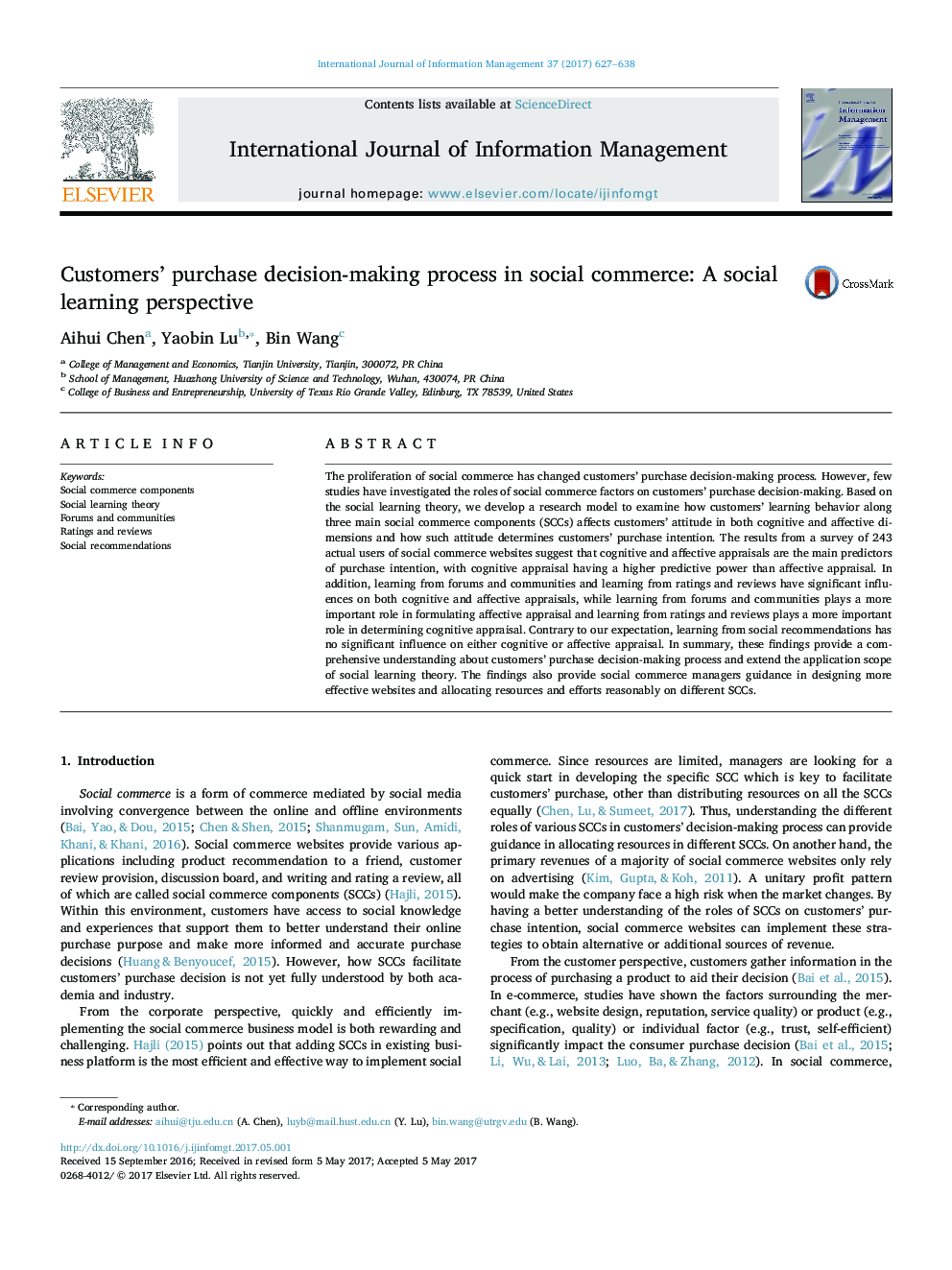| Article ID | Journal | Published Year | Pages | File Type |
|---|---|---|---|---|
| 5110758 | International Journal of Information Management | 2017 | 12 Pages |
Abstract
The proliferation of social commerce has changed customers' purchase decision-making process. However, few studies have investigated the roles of social commerce factors on customers' purchase decision-making. Based on the social learning theory, we develop a research model to examine how customers' learning behavior along three main social commerce components (SCCs) affects customers' attitude in both cognitive and affective dimensions and how such attitude determines customers' purchase intention. The results from a survey of 243 actual users of social commerce websites suggest that cognitive and affective appraisals are the main predictors of purchase intention, with cognitive appraisal having a higher predictive power than affective appraisal. In addition, learning from forums and communities and learning from ratings and reviews have significant influences on both cognitive and affective appraisals, while learning from forums and communities plays a more important role in formulating affective appraisal and learning from ratings and reviews plays a more important role in determining cognitive appraisal. Contrary to our expectation, learning from social recommendations has no significant influence on either cognitive or affective appraisal. In summary, these findings provide a comprehensive understanding about customers' purchase decision-making process and extend the application scope of social learning theory. The findings also provide social commerce managers guidance in designing more effective websites and allocating resources and efforts reasonably on different SCCs.
Keywords
Related Topics
Social Sciences and Humanities
Business, Management and Accounting
Management Information Systems
Authors
Aihui Chen, Yaobin Lu, Bin Wang,
